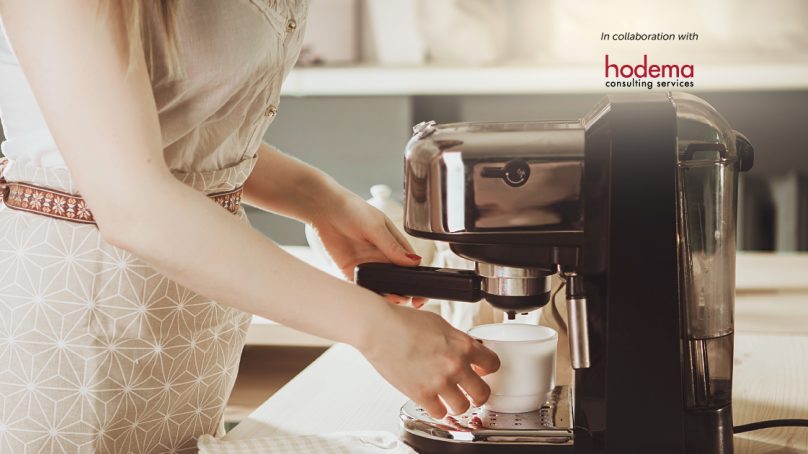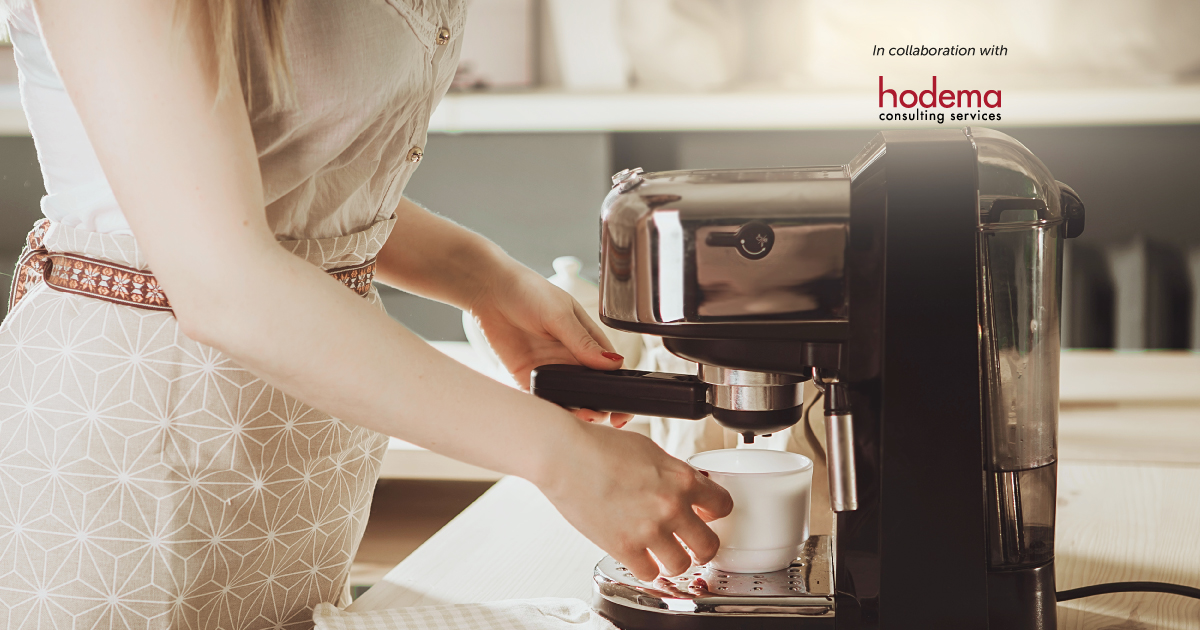

Demand for specialty coffee is no longer limited to a small minority. A greater percentage of coffee enthusiasts are drinking specialty blends in coffee shops around the world, and brands are starting to put a face and name to their producers and the conditions in which they work, as well as the environment in which beans are cultivated. Most cafés have set the bar higher when it comes to the beverages they offer, and this has been accompanied by a level of social responsibility. It is commonplace for coffee shops to display their coffee brewing methods, thereby taking their clients on a journey from bean to cup.
A great deal of attention has also been put on food. While international chains that opened in the past decade usually offer basic items, more recent concepts tend to serve a well-balanced menu of drinks and dishes.
Décor, décor and more decor
But successfully catching the eye of the consumer is not only down to what’s in the mug or on plate. What really counts offering a unique café experience, and that extends to visual identity. Owners are putting more effort and creativity into their interior design and are shifting to more chic and less brash-looking outlets, with Instagram-friendly equipment on display. This is not a huge surprise, since social networks run the show today more than ever before.
Dose Cafe and Caf Café, which have outlets in KSA, Kuwait, Qatar and the UAE, have opted for a modern look, while the chain %Arabica has chosen a white and minimalist vibe. The 15 Overdose outlets in Saudi Arabia give star billing to their baristas and different types of coffees.
With its 23 shops in the UAE, created by the team behind London Dairy Café, LDC Kitchen and Coffee boasts a chic New York brasserie atmosphere, as does Flat White in Qatar, with its wooden furniture.
Saudi-born Cupa Gahwa remains true to its roots, serving Arabic coffee in traditional tableware. To stand out in this highly competitive industry, some have also selected a theme for their venue, with everything from arts, sports, music and even food preferences, such as vegan or keto products.
Local to the core
Another significant change in the last few years is the emergence of locally grown concepts. Gulf countries, where American-style chains had been going strong for a number of years, are now witnessing a shift toward outlets with a local feel to them, and there’s a large variety to choose from. Some are standalone or small chains, ranging from Western concept replicas to oriental style venues, and can be full-fledged outlets (with more than 60 seats), popups, kiosks or trailers. The newbie is the espresso bar, which usually operates inside retail shops (car showrooms, fashion retail, tech hubs and business incubators).
standalone or small chains, ranging from Western concept replicas to oriental style venues, and can be full-fledged outlets (with more than 60 seats), popups, kiosks or trailers. The newbie is the espresso bar, which usually operates inside retail shops (car showrooms, fashion retail, tech hubs and business incubators).
Specialty coffee lovers from KSA, Kuwait, Qatar and the UAE, and others who have always enjoyed trying new places, are supportive of the trend and are gradually shying away from big international names.
One of the reasons why the move has been swift is the introduction of stringent import regulations and well-established importers, which have given café owners easier access to sourced beans.
There are some aspects to improve, however. Many medium or large outlets do not really make good use of their space and equipment. Perhaps they could be inspired by other countries, where brands create academies to organize workshops or provide their brewing methods. Outlets which have a roaster on site could also sell their products to other coffee shops.
In short, the possibilities are endless, and things are generally brewing nicely.
Nagi Morkos
Founder and Managing Partner
Hodema













